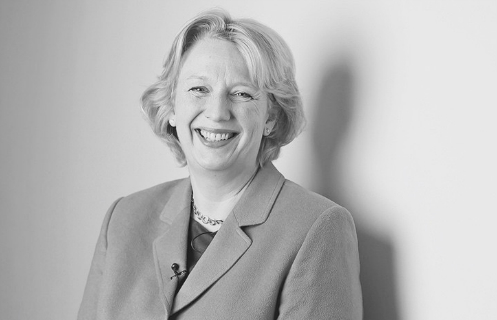Ahead of the forthcoming consultation Faith, Belief and Nation-building, we’re asking some of the participants a few quick-fire questions to give you a flavour of their interests and thoughts…
Today we talk to Jayne-Anne Gadhia, Chief Executive Officer of Virgin Money and leader of a recent Government review into Women in Finance.
What have you been working on recently?
I am the CEO of Virgin Money which keeps me busy, but I have just published a book The Virgin Banker: My Life in Finance.
I think the strapline “Building a business, breaking glass ceilings and dealing with dinosaurs” gives a pretty good summery of the main themes.
I have also been active, as HM Treasury’s Women in Finance champion, in promoting gender balance within our sector.
Why did you accept the invitation to Malvern 2017: Faith, Belief and Nation-building?
The conference will focus on the question What sort of Britain do we want to build for the 21st century?
This is a really important question, especially given the UK’s decision to leave the European Union.
The EU vote laid bare a lot of divisions in our society – in particular, I get the sense that too many people and regions in the UK feel that they have not shared in the fruits of economic growth and feel deeply alienated from political and indeed business elites.
What are you looking forward to about the conference?
Discussing these important issues with a diverse set of individuals from very different backgrounds and with very different perspectives, and hopefully making a difference in terms of building a more economically and socially just and inclusive 21st century Britain.
I hope this conference will not just be a talking shop, but lead to real practical action to build the sort of Britain I have described above.
As you know, the consultation takes its name from the conference of 1941, instigated and convened by Archbishop William Temple…
What do you think has been the most positive change in British society since 1941?
The UK has undoubtedly become a much more open, tolerant and meritocratic society. There is still much to do, but in particular changes in society over the last 50 years, mean that the opportunities open to me and my daughter for women are such that my mother and grandmother could only have dreamt off.
What do you think has been the most negative change in British society since 1941?
We have become a more individualistic and perhaps selfish society.
Why is it important that the role of faith and belief be a part of the conversation about nation-building?
I think that society needs a clear moral code and we need to make sure this is clear and consistent in the years ahead.
Thanks Jayne-Anne!
You can follow Jayne-Anne on Twitter here, and find more information about Malvern 2017: Faith, Belief and Nation-building by following this link.
More blogs on religion and public life
- “Barnabas Thrive” led by Revd Dr Paul Monk, is awarded Kings Award for Voluntary Service
by Matthew Barber-Rowell - How could a Temple Tract have had even more traction?
by Simon Lee - Remembrance Day: Just Decision Making II
by Matthew Barber-Rowell - Trustees Week 4th Nov – 8th Nov 2024
by Matthew Barber-Rowell - Some ancient wisdom for modern day elections
by Ian Mayer

Discuss this